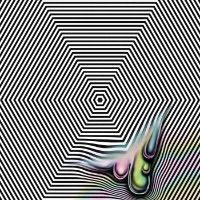- Digital
FKL
On the Water
GETME!
- Cat No: GME013
- Release: 2016-05-20
- updated:
Formerly playing under the moniker of Funktionslust, the artists now known as FKL formed in London when Sage Redman and Joe Gillick met in their first year of university. Originally, Sage grew up in Seattle - her parents were "super unmusical", but her uncle had connections to the grunge scene. For her 13th birthday he burnt her a set of CDs titled 'Sage's Songwriting Series', featuring classic rock songs like 'Life on Mars'. Joe, on the other hand, grew up in London, where he was exposed to the music of grime crews like Ruff Sqwad and Roll Deep early on; he didn't really appreciate its importance at the time though. "At that age, you just follow the crowd," he says, "I was quite impressionable."
Still, grime's futuristic impulses - and its continued relevance in 2016 - remain an important touchstone for the band. You can pick up hints of numerous diverse sounds in FKL's music, from technoid rhythms to glacial coldwave atmospheres, but they bring these styles into a hyper-modern sound world that is distinctly their own. At heart, Sage and Joe are classicists, writing traditional melodic pop songs, but there's an experimental bent to their production informed by artists like Four Tet, Mumdance, and Oneohtrix Point Never. "All the stuff I grew up listening to has been really melody-driven," says Sage, "But all of a sudden, you acquire this experimental side...;"
At university, Sage dedicated a chunk of her research to musicians who push solo instruments into new, experimental directions - artists like Colin Stetson with the saxophone, Squarepusher with the bass guitar, and Elizabeth Fraser with her voice. "People who really focus on one side of their practise," Sage says, "Out of that focus, you get different perspectives." It's an approach that translates into the band's own practise, albeit in a way that's perhaps less obvious. At one point, Joe plays a new song from a huge pool of demos, an instrumental built around a simple repeated bass tone. "It's about exploiting one sound and working around that sound," he says. "How far can you take this bass sound and build a pop song out of it?"
Still, grime's futuristic impulses - and its continued relevance in 2016 - remain an important touchstone for the band. You can pick up hints of numerous diverse sounds in FKL's music, from technoid rhythms to glacial coldwave atmospheres, but they bring these styles into a hyper-modern sound world that is distinctly their own. At heart, Sage and Joe are classicists, writing traditional melodic pop songs, but there's an experimental bent to their production informed by artists like Four Tet, Mumdance, and Oneohtrix Point Never. "All the stuff I grew up listening to has been really melody-driven," says Sage, "But all of a sudden, you acquire this experimental side...;"
At university, Sage dedicated a chunk of her research to musicians who push solo instruments into new, experimental directions - artists like Colin Stetson with the saxophone, Squarepusher with the bass guitar, and Elizabeth Fraser with her voice. "People who really focus on one side of their practise," Sage says, "Out of that focus, you get different perspectives." It's an approach that translates into the band's own practise, albeit in a way that's perhaps less obvious. At one point, Joe plays a new song from a huge pool of demos, an instrumental built around a simple repeated bass tone. "It's about exploiting one sound and working around that sound," he says. "How far can you take this bass sound and build a pop song out of it?"



